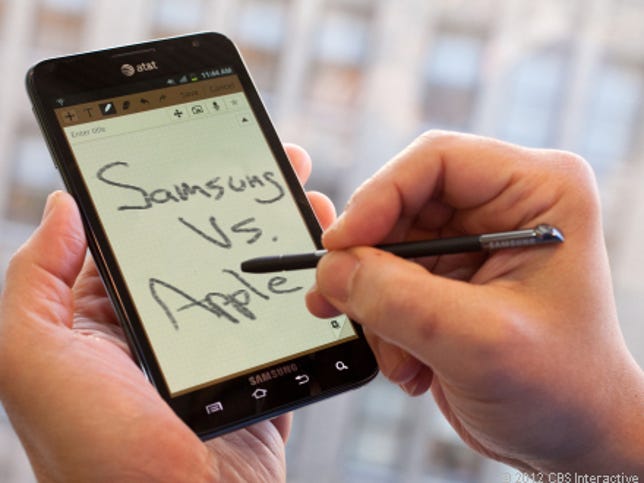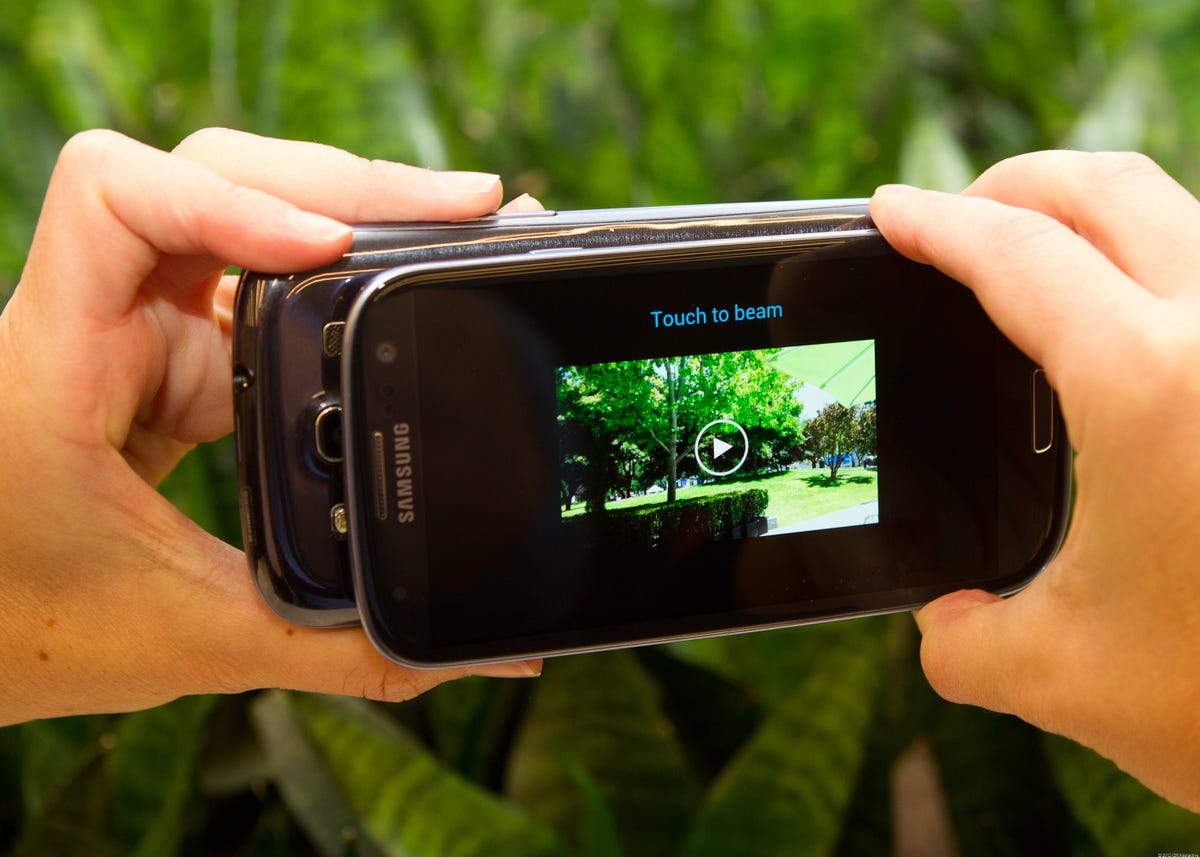Samsung Electronics — and possibly Android — may need a complete overhaul if Apple has its way.
Today’s jury verdict, in which Apple was awarded $1.05 billion in damages after Samsung was found to have copied several key design elements in the iPhone and iPad, could have a ripple effect in how Samsung designs its phones.
Samsung may have to do better than draw its inspiration from nature when designing and building the next wave of Android smartphones. The jury’s decision was a statement on just how similar the products really are in the minds of the consumer. As a result, skeptics believe Samsung may need a radical reinvention of its smartphones.
“Samsung needs to go back to the drawing board from a design aspect,” said Charles Golvin, an analyst at Forrester.
Apple v. Samsung: The verdict
- Jury awards Apple more than $1B, finds Samsung infringed
- Samsung’s infringing devices: The scorecard
- Apple’s big win over Samsung — what does it mean?
- Apple’s $1,051,855,000 victory: Google, don’t tread on me
- Apple: Trial win means more than money or patents
- Samsung: Verdict is ‘loss for American consumer’
- How qualified is the Apple-Samsung jury? We found out
- Full coverage: Apple v. Samsung
And it may not just be Samsung. Analysts believe many other Android partners will start reconsidering their designs and the look and feel of their products.
What makes the decision so damaging is the affirmation of patents covering crucial elements of the smartphone experience, from the pinch-to-zoom function on pictures to the “rubber band” effect when scrolling down a menu, these are elements that consumers take for granted.
The challenge will be for Samsung to find new approaches to these core functions and sell them to consumers as superior smartphone features. That’s not an easy task given the years of training consumers have had with smartphones, and the fact that in many cases Samsung is borrowing from Google’s stock Android experience.
Samsung’s infringing devices (pictures)




More, different TouchWiz
The initial solution could be a return to more TouchWiz elements in future Samsung phones. In a bid to shield its designs from future Apple attacks and distance its products from the iPhone and iPad, Samsung could take more control over how it implements the Android operating system.
TouchWiz, however, was a much reviled aspect of the initial Galaxy S smartphones that many felt slowed down the phone and messed with the “pure Android” experience. In addition, custom interfaces like TouchWiz delay updates to subsequent Android operating systems. It isn’t a coincidence that reception to subsequent Galaxy S flagship phones improved as Samsung pulled back on TouchWiz.
Yet with the company under the legal gun, Samsung could return to an even more heavy-handed approach. Android skins haven’t been universally hated; HTC’s Sense user interface was initially seen as a key advantage during the early days of Android, before it became too cumbersome. HTC’s latest version of Sense, which strips away a lot of the complexities of older HTC phones, has been welcomed much more heartily.
Moments of innovation
Samsung, meanwhile, has its own history of innovation that helps set its products apart from Android competitors.


CNET
On the software side, the Korean electronics giant has a battalion of motion controls that enhance Android. Its work in the last year on applications compatible with a stylus pen step in directions that no other recent competitor has, and the new Galaxy Note 10.1 tablet introduced a version of side-by-side multitasking unseen on the larger form factor.
In addition, Samsung’s Galaxy S3 flagship phone enhanced Android features to “beam” larger files, like photos and videos, using a short-range radio protocol called NFC. Also in its flagship phone is a handful of sharing and presentation options that link compatible phones in a peer-to-peer network for sharing images.
Samsung’s hardware pioneering, on the other hand, needs more work. While some models do look a little different, like the supersize Samsung Galaxy Note with its 5.3-inch screen, and the Samsung DoubleTime, most of its smartphones are variations on the same theme: a plastic, rounded rectangle in slab formation.
Rather than train a laser focus on besting competitors like Apple and HTC by hewing to designs that have proven successful, Samsung needs to take a cue from competitors like Nokia’s Lumia 900 and 808 PureView, Motorola’s Droid Razr, and even U.S. carrier T-Mobile with its Sidekick series and risk a radical design that may or may not win fans.
At the very least, such a move will establish Samsung as a free-thinker, and not a follower.
Stalling for time
It’s inevitable that Samsung will appeal the case. But even if its chances of success are mixed, the extra time will allow the company to keep its products — and their contested features — on the market. Moreover, postponing an absolutely final decision will give Samsung more time to launch products already in the pipeline that could also attract Apple’s ire, rather than scrap production plans.
Samsung undoubtedly has redesigns ready, said Maribel Lopez, an analyst at Lopez Research, but it will still take time to roll them out into new products.
But a key problem is that many of the critical features that were found to be violating Apple’s patents come from the core Android experience. While Samsung can add different elements to Android, it’s much harder to change the operating system itself.
Such a move would require extensive research and development resources, and would hobble Samsung if it wanted to upgrade to later versions of Android.


Josh Miller/CNET
“You can change the shell easily, but there is only so much reskinning that can be
done,” Lopez said. “I’m convinced it doesn’t make sense to throw out the Android UI
for a Samsung custom one.”
The other option: drag out the appeals process — which could potentially take years — and pressure Google to make the changes to Android itself, or come to Samsung’s aid in a more open legal battle against Apple.
Either way, Samsung’s result might present a radical new way of using a smartphone, and potentially one that’s better than the experience that’s out in the market now.
“If Apple patents are upheld long term, it will force the industry toward innovation and differentiation,” said Gartner analyst Michael Gartenberg. “That’s not a bad thing for the market and for consumers.”


Now playing:
Watch this:
Apple’s patent win and what it means for you
1:44



